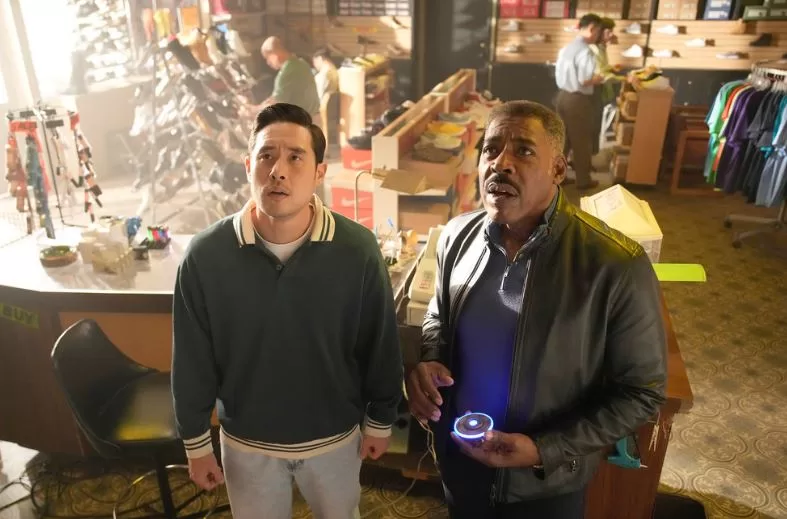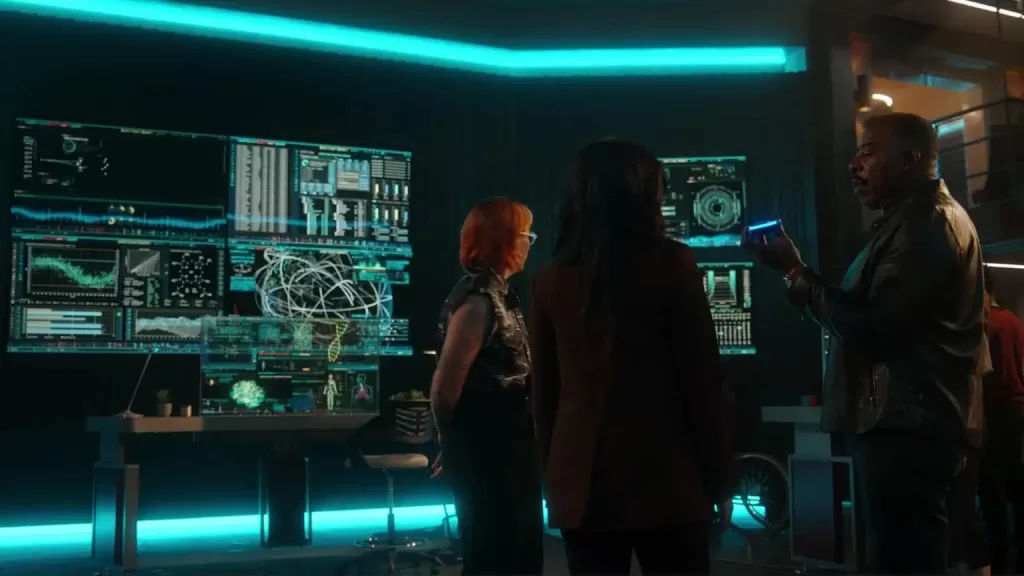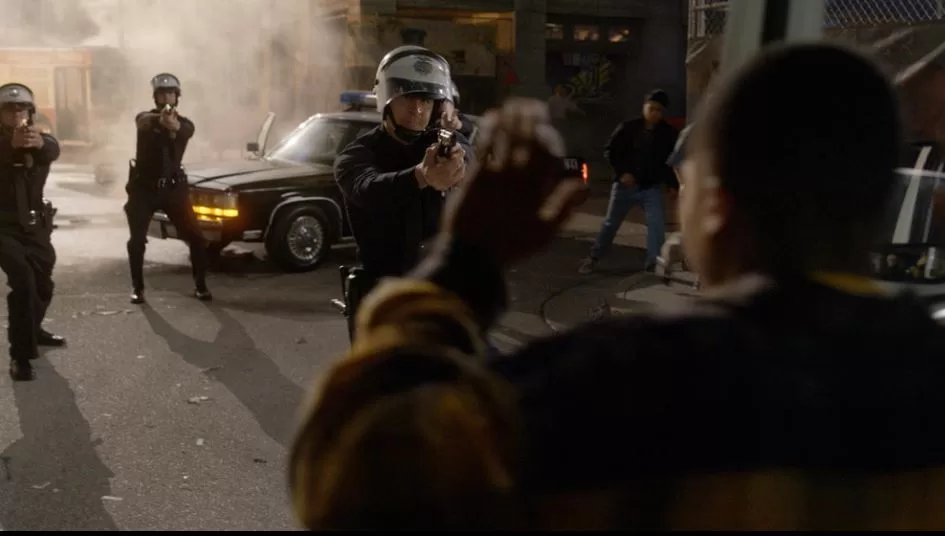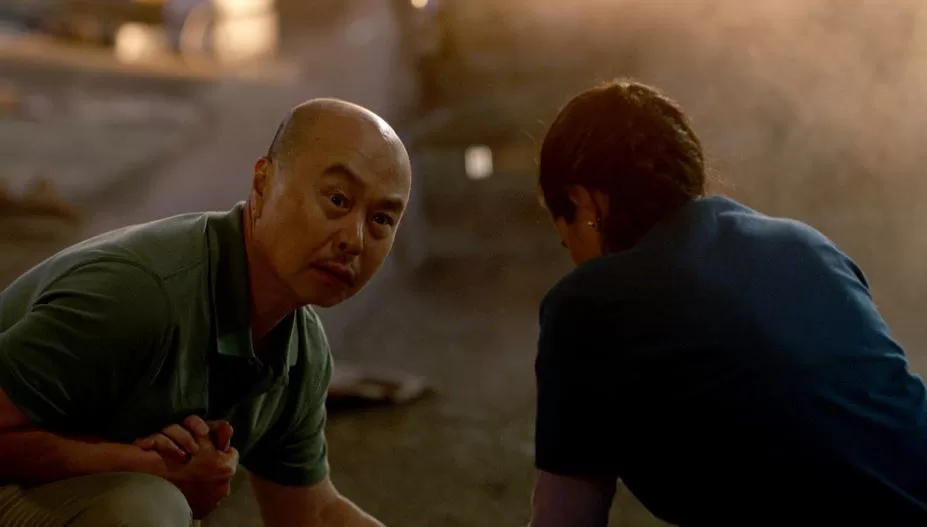Looking back on how American history was taught back when I was in school, it often felt literally Black and white. Which was odd for someone who, as the child of Chinese immigrants, was neither. Even as I entered my college years and beyond, even as civil rights matters surged back into headlines, throughout the 2010s and into the 2020s, I often felt like I existed in some kind of null space outside the world the rest of America — at least the one that was being written and talked about in the media — seemed to exist in. Everything I know about Asian American history, I learned on my own, reading and watching documentaries in an attempt to fill in the gaps left by the American education system.
I remember a few brief lessons in school about the 1992 LA riots, and they all focused on how the riots erupted after a Black man, Rodney King, was brutally beaten by white police officers, who were then acquitted. What they never taught us was that a second injustice — the murder of a 15-year-old Black girl, Latasha Harlins, by a Korean store owner, and that store owner’s subsequent light sentence — played a part as well.

“One Night in Korea Town,” the fifth episode of Quantum Leap‘s second season, takes Ben to this dark chapter in Asian American history… one that’s too often glossed over or ignored outright. In most of Ben’s leaps, his race is inconsequential; even when he leaps into a person of color, it doesn’t significantly impact his quest. This time, though, Ben leaps into a fellow Korean: the teenaged son of LA sneaker store owner Jin.
In an eerie nod to what happened to Harlins — who was accused of stealing an orange juice for perhaps no reason other than that she was Black — Jin sees a Black teenager, Damien, enter the store and immediately accuses him of trying to steal. Though it turns out Damien is known to Jin’s other son, Sonny.
The episode briefly explores generational tensions between Jin and his two sons. Like many immigrant parents, Jin is very proud of what he has built after arriving in America with nothing and wishes to pass on his legacy to his children. But the boys have different ambitions… Sonny wants to start his own shoe line, with Damien as his designer and business partner, and Ben’s host is planning to join the Marines.
Since, at Ben’s request, Addison is no longer his hologram, Magic is the one who steps into the imaging chamber this week — a necessary move on the part of the writers, since the episode explores tensions between Black and Asian Americans, and so his perspective is vital. Magic is also the only member of Team Quantum Leap that hadn’t taken on the role of hologram yet, and so you could also say it was his turn. I’m glad the show will be rotating who gets to be the hologram this season; Ben and Addison’s drama has been well played out over the course of Season 1 and early Season 2, and it’s nice to give the other characters (who are all excellent) more time to shine.
When the deadly riots break out, Ben learns that his quest this time is to save the people around him. First, a nurse who’d stopped into the store for shoes and would have been caught in the crossfire trying to get home. Then Jin, who arms himself with a rifle and attempts to defend his store.

Tensions and emotions run high as Ben hunkers down with Jin, Sonny, and the nurse in the store, unable to leave without running straight into the violence outside. Magic initially tries to act professionally detached, advising Ben on strategy. But when he sees Damien, who’s fated to be mistaken for a rioter and shot by police, the leap gets personal. Because Magic knows what it’s like to be treated like a criminal because of his race alone — it happened to him as a young soldier. And he was there for the 1967 race riots.

The episode also gives us a glimpse into Magic’s personal life — something the show has been relatively vague on until now. Turns out he’s more than the tough, competent boss he was portrayed as in Season One. Now, he’s also struggling with alcoholism, exacerbated by the stress of Ben’s disappearance and the loss of Quantum Leap during the three-year time jump. And he’s been dating Beth Calavicci — Al’s widow.

This iteration of Quantum Leap has placed great emphasis on humanizing its characters — both its regulars and its guests — and takes special care to give each and every one emotional depth. “One Night in Korea Town” does a particularly good job of doing that for Magic and adding layers to a character we already know and love. Ben was the main character of this episode, but Magic was truly the standout.
There’s a lot to unpack in this episode, and given the heavy topic it chose to tackle, its conclusion feels a bit overly optimistic, wrapping everything up in a little too neat a bow. But then again, that optimism has been a part of Quantum Leap‘s DNA since the very first episode of the original show. After all, the entire premise of the show is that it’s possible to change history for the better. And let’s face it, we could all use a happy ending now and then.
5/5 stars
